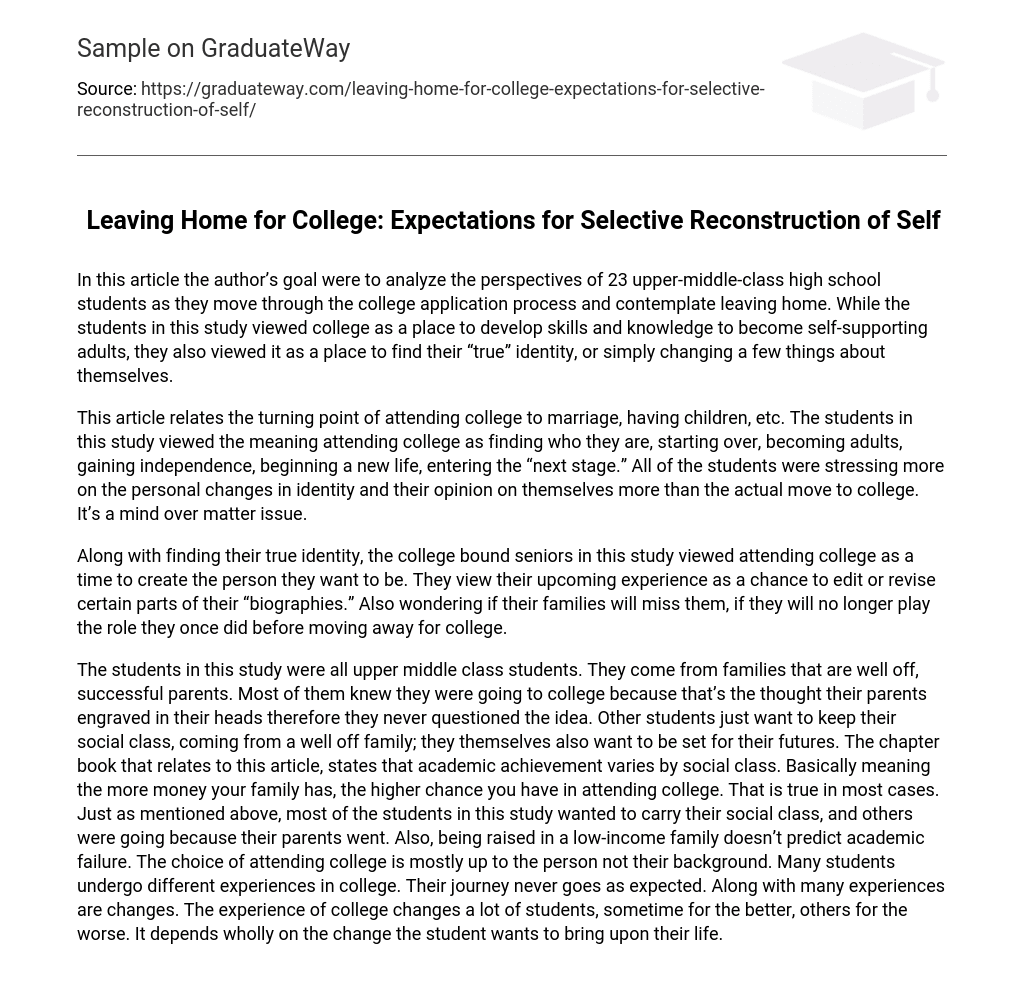In this study, the author explores the perspectives of 23 upper-middle-class high school students as they go through the college application process and consider moving away from their homes. These students view college as a chance to gain necessary skills and knowledge for adulthood, while also serving as a place where they can uncover their true identities or undergo subtle personal changes.
This article examines the perception of college as a significant milestone in life, comparable to marriage or starting a family. According to the study, students view college as an opportunity for self-discovery, a fresh start, the transition into adulthood, gaining independence, embarking on a new journey, and entering the next phase of their lives. The research primarily highlights personal transformations in identity and self-perception experienced by students rather than merely physically moving to college. Ultimately, it emphasizes the importance of mindset in shaping one’s college experience.
College-bound seniors in this study expressed their desire to discover and shape their true identity through attending college. They see it as an opportunity to rewrite certain aspects of their personal narratives, while also considering the impact on their families and potential changes to their roles within the family once they leave for college.
The study examined students from affluent backgrounds, whose parents were successful. Many of these students always expected to go to college, as their parents had instilled that expectation in them. Other students also wanted to maintain their social status and secure their future, given their wealthy families. The chapter book associated with this article argues that academic achievement varies based on social class and suggests that having wealthier families increases the likelihood of attending college. This is generally true for most cases mentioned earlier, with many students aspiring to uphold their social class while others being influenced by their parents’ experiences. However, growing up in a low-income family does not automatically result in academic failure. Ultimately, the decision to pursue higher education primarily depends on the individual rather than their background. College life exposes students to diverse experiences and often brings unexpected changes that can have either positive or negative effects depending on the transformations they seek in their lives.





